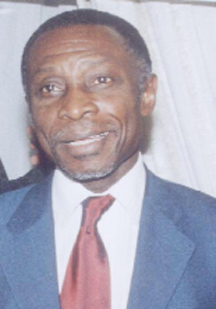-Greenidge
Recommendations from stakeholders at the National Insurance Scheme (NIS) consultations should be urgently implemented and not cast aside by government as is customary or the results for contributors could be dire.
So says A Partnership for National Unity’s Finance Shadow Minister Carl Greenidge, who was present at the consultations held at the National Library to discuss the eighth actuarial report, which has warned that the scheme is near a crisis stage.
The actuarial report, undertaken by consultants Horizonow, noted that in 2011 NIS experienced its first ever deficit in its 42-year history of $371M.

Horizonow’s reviewer Derek Osborne and Chairman of NIS Dr Roger Luncheon spearheaded the meeting which allowed for interaction among stakeholders, the actuary and government.
“There are about 30 discrete recommendations which were provided, and I reminded everyone there that although NIS has been the subject of many studies and recommendations given to improve its performance government has never implemented any, and I hope this isn’t another one of those times,” Greenidge told Stabroek News yesterday.
“The report found that in 2011 income was less than the expenses and that they were operating at a loss …they are not feeling it now because there is a reserve but those reserves cannot last forever and that is the message they need to get urgently,” he added.
It was also highlighted in the report that no remedial action had been taken since 2008, when the 7th actuarial review had proposed a number of reforms. In addition, a NIS reform committee appointed by the government had made reform recommendations in 2007 but these were not followed by meaningful change.
Greenidge reiterated that the report had projected a larger deficit this year and that with assets of just over two times its annual expenditure the “entire Fund will be exhausted in less than 10 years if contribution rate increases and benefit reforms are not made immediately.”
Dr Roger Luncheon had denied that the National Insurance Scheme (NIS) is in immediate financial trouble and could soon collapse. Luncheon, who has chaired the NIS Board since 1992 and has faced criticism during his tenure, agreed that there was much evidence not only from seventh report but also from the NIS reform committee of problems in the scheme. But he noted that the recommendations were not mandatory and choices could be made on implementation, although he admitted that the latest review suggests that “specific recommendations… should have been given greater attention.”
The latest report has urged the raising of the contribution rate from 13% to 15% no later than January next year, hiking the wage ceiling to $200,000 per month and a phased raising of the pension age from 60 to 65 to keep the scheme afloat.
More recently, NIS’s finances have further been clouded by the impairing of its $5.8B investment in Clico (Guyana). “Among the things discussed were compliance, corruption, problems of investment …that there should be a revision of guidelines for investments such as due diligence and more scrutiny,” said Greenidge.
The fact that NIS seems lax in collection of contributions from employers was another issue highlighted by Greenidge and he said that it was one of the main reasons for the local social security organization falling into the deficit it is in. “Only 40-60 per cent of contributions from the working population are collected and that is just not good enough …that has to do with the NIS’s delinquency and not enforcing that measures be put in place to stop this,” he said.
He made reference to the case against housing scheme developer Omprakash ‘Buddy’ Shivraj who was charged with failing to turn over records to a National Insurance Scheme (NIS) inspector and whose staff had allegedly attacked an inspection team when they went to check on NIS payment records of his employees. The police were criticized by NIS and the public for failing to properly follow up on the report. “When you are not going to follow through with the collection of monies you will always be in a bad state,” Greenidge said.





